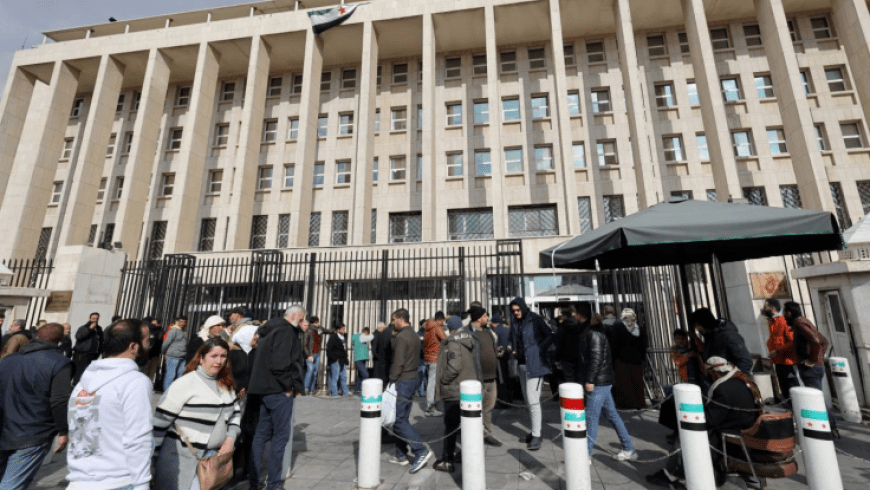As Syria navigates the turbulent aftermath of more than a decade of war, a contentious question has returned to the national spotlight: Could privatization offer a viable path to reconstruction and development—or is it a perilous gamble that may entrench inequality and corruption?
In a rapidly shifting global economic landscape, privatization has long been heralded as a tool to streamline public services, reduce fiscal burdens, and unleash market-driven efficiencies. Yet in post-conflict states like Syria, where institutions remain fragile and public trust is tenuous, the prospect of transferring state-owned assets to private hands raises more questions than answers.
What Is Privatization—and What Does It Promise?
At its core, privatization involves the transfer of ownership and management of public assets and services to private entities. Proponents argue it enhances economic efficiency by introducing market competition, increasing productivity, and alleviating fiscal strain on governments. Historically, its modern form gained traction in the late 20th century under leaders like Margaret Thatcher and Ronald Reagan, becoming central to the neoliberal push to reduce state intervention in the economy.
Yet privatization is not merely a financial transaction. It redefines the role of the state in society, reshaping not only economic structures but also the state’s political and social contract with its citizens. What may seem like a loss on a corporate balance sheet could, from a state perspective, yield long-term social, political, or strategic benefits. Conversely, what may appear as revenue generation could, in fact, amount to a surrender of sovereignty over critical services.
The Post-Conflict Dilemma
In conflict-scarred nations like Syria, the debate around privatization takes on new urgency—and sensitivity. Can such a policy serve as a development engine in the country’s reconstruction phase, or does it risk deepening economic exclusion and accelerating state capture by elite networks?
The government has yet to clearly articulate a strategic vision for privatization. Has it conducted the necessary evaluations to determine whether this is truly the right model for a fragile, post-war Syria? And if so, under what safeguards?
Risks and Structural Challenges
For privatization to be meaningful and equitable in Syria, policymakers must confront a host of potential pitfalls:
- Elite Capture and Cronyism
Without strong regulatory frameworks, privatization risks reinforcing the dominance of political and economic elites, turning public goods into private monopolies. This is not an accusation, but a sober warning. - Institutional Weakness
Syria’s regulatory institutions remain underdeveloped and often compromised by inherited corruption networks. This undermines efforts to ensure transparency and accountability in privatization processes. - Loss of Control Over Strategic Sectors
Entrusting key sectors—such as water, electricity, education, or healthcare—to private actors could severely limit the government’s ability to guarantee universal access, disproportionately impacting the most vulnerable. - Widening Inequality
Privatization can exacerbate social divisions, especially if profits flow to the well-connected few while the broader population bears the brunt of reduced subsidies and higher service costs. - Legal and Administrative Gaps
Transforming ownership structures requires legal reform, administrative overhaul, and technical capacity—challenges that Syria’s transitional government may not yet be fully prepared to meet.
Lessons from Other Nations
Experiences from other post-conflict states suggest that privatization is far from a neutral tool. Without strong institutions, transparent governance, and protective social policies, it can lead to instability rather than development. Civil society inclusion, clear legal frameworks, and digital transparency tools are essential to mitigating these risks.
A Call for Strategic Clarity and Social Justice
Privatization in Syria must not be a hasty political maneuver or a desperate fiscal fix. Instead, it should be part of a holistic national recovery strategy that prioritizes justice, inclusion, and sustainable development. Syrians are right to voice concern—not as obstructionists, but as stakeholders in their country’s future.
There is indeed potential for privatization to contribute to Syria’s reconstruction. But its success hinges on whether it is approached as a means of strengthening the state—not weakening it—and whether it upholds the principles of equity, dignity, and public accountability.
The central question remains: Will Syria’s government chart a privatization path that benefits all citizens, or will it fall into the trap of shifting public burdens into private hands? The answer lies not only in policy, but in the collective awareness and active participation of the Syrian people.
This article was translated and edited by The Syrian Observer. The Syrian Observer has not verified the content of this story. Responsibility for the information and views set out in this article lies entirely with the author.


